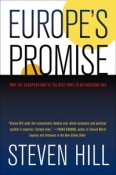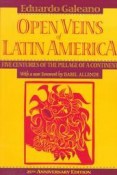Q&A: Steven Hill-10 Steps to Repair US Democracy
Written on March 20th, 2012 |
Aired 03/18/12
Among the things that most people agree are in big trouble these days are the European Union and democracy in the US. I will talk with today’s guest, STEVEN HILL, about both.
We have been hearing for two years about the trouble Europe is in. The debt crisis in Greece, Spain, Portugal, Ireland and beyond is challenging this federation of nations and economies to share the solutions to problems that have proven worst in individual countries who took greater risks than their more prudent neighbors. After Europe seemed to have fared better than the US in the early stages of this prolonged crash, what brought on this crisis? How close are they to solving it? How close are they to blowing it? What would Hill’s advice be? And what does it mean for the rest of the world and for the US in particular?
While the bad news of this Euro crisis makes headlines in the US, what has not made headlines is the good news contained in HILL’s 2010 book EUROPE’S PROMISE. I will check in with Hill about the current state of that promise.
Closer to home, HILL believes that America’s recent economic collapse was preceded by a longer-term political collapse. Even before the economic crisis, the US faced choice-less elections, out-of-control campaign spending,partisan polarization, a rigidly divided Congress, a filibuster-wild U.S. Senate, superficial debate, mindless media, a partisan Supreme Court, and paralysis in the face of new global challenges.
As the middle collapses and partisans take over, Americans’ frustration grows – witness the Tea Party and the 99%. In a brand new 2012 Election edition of his 2006 book, Steven Hill renews his 10 Steps to Repair American Democracy.
Q&A: STEVEN HILL, Author – Europe’s Promise
Written on June 2nd, 2010 |
Aired 05/30/10
We're hearing a lot about the trouble Europe is in. The debt crisis in Greece, and perhaps Spain, Portugal, and Italy, is threatening the Euro and the European Union. What's really going on? How did it happen? How bad is it? How will they deal with it? And what does it mean for the rest of the world and for the US in particular?
We'll deal with those issues this Sunday, but that's not all. While the bad news of this Euro crisis makes headlines in the US, a quiet and successful revolution taking place in Europe does not. Europe seems to be finding a way to make capitalism and democracy work for people, not just for corporations. I think this is a critical unreported story in terms of its potential impact. Here's just a few things you may not have heard about.
The European Union, 27 member nations with a half billion people, has become the largest, wealthiest trading bloc in the world, producing nearly a third of the world's economy - nearly as large as the U.S. and China combined. Europe has more Fortune 500 companies than either the US, China or Japan.
European nations are rated by the World Health Organization as having the best health care systems in the world. Yet they spend far less than the United States for universal coverage, even as U.S. health care is ranked 37th.
Europe leads in confronting global climate change with renewable energy technologies like solar and wind power, conservation and "green design," creating hundreds of thousands of new jobs in the process. Consequently, Europe's ecological "footprint" (the amount of the earth's capacity that a population consumes) is about half that of the United States for the same standard of living.
Q&A: Eduardo Galeano, Latin America’s most acclaimed writers
Written on August 17th, 2009 |
Aired 08/11/09
It is my privilege to have Latin America's most acclaimed writers, EDUARDO GALEANO. I confess I was not aware of him until Hugo Chavez presented Barack Obama with one of his books. For that introduction, I thank the Venzuelan President. GALEANO's works are a unique blend of history, fiction, journalism and political analysis, and his life is so much more than that.
Born in Uruguay in 1940, EDUARDO GALEANO began writing newspaper articles as a teenager, by the age of 20 he became Editor-in-Chief of LaMarcha. A few years later, he took the top post at Montevideo's daily newspaper Epocha. At 31, he wrote his most famous book - Chavez gift -- The Open Veins Of Latin America: Five Centuries Of The Pillage Of A Continent.
After the 1973 military coup in Uruguay, GALEANO was imprisoned and forced to leave the country. He settled in Argentina where he founded and edited a cultural magazine, Crisis. After the 1976 military coup there, he moved to Spain where he began his classic work Memory of Fire, a three-volume narrative of the history of America, North and South. He eventually returned home to his native Uruguay where he now lives.
http://www.sigloxxieditores.com/
http://www.progressive.org/galeano
